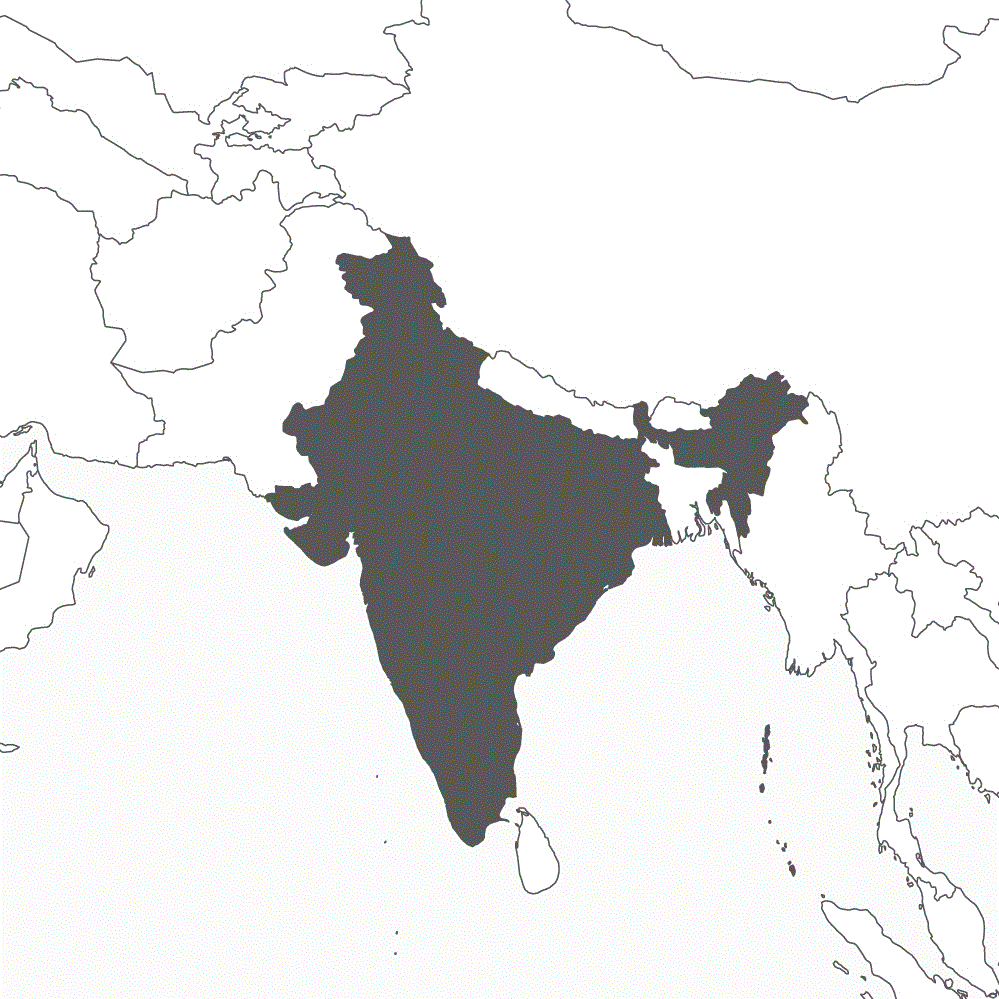Military Partner
HANOVER/BERLIN/NEW DELHI (Own report) - The German Chancellor has announced a further intensification of cooperation with India and is considering sending supplies from the German nuclear industry to the nuclear power state. This is the result of the recent meeting between Angela Merkel and the Indian Prime Minister, Manmohan Singh. Since some time, India has become the target of a German influence offensive, bent upon strengthening that country as an Asian counterweight to the People's Republic of China and as a regional controlling power for Southern and Southeast Asia. German government circles are therefore offering New Delhi large scale arms supplies. Although Washington is pursuing similar plans on the Subcontinent, Berlin still has sufficient leeway for an independent policy, one learns in the German capital: India needs cooperation partners, to be able to avoid a too strong dependence upon the United States. A report, made public April 23, explicitly refers also to the bilateral military cooperation.
As is formulated in the "German-Indian Joint Declaration" made public Sunday Apr. 23, both states will "deepen (...) the strategic partnership."[1] This refers in particular to bilateral trade, which is to reach a volume in the two-digit billions before 2010, as well as to German investments in India, that, because of its well trained but still comparatively poorly paid workers, is seen as a profitable location for industrial and service production. In addition, German companies are seeking to open onto the Indian market, even though only a small portion of the impoverished billion-strong population can be classified as better funded. With micro insurance policies, that can be had for a few cents, the Alliance Insurance Corporation has extended its stock of clients to India - supported by the German development aid organization, GTZ. Such an approach is not only profitable, it is also useful, for locally attaining "political acceptance", rationalizes a member of the board of the Munich enterprise, whose receipts from premiums in India has tripled over the past year.[2]
Atomic Export
As Chancellor Merkel announced following the meeting on Sunday, future deliveries from the German atomic industry to the Southern Asian nation are being considered. India recently concluded a nuclear agreement with the United States, that subverts international treaties for the prevention of the proliferation of nuclear arms. The Indian Prime Minister now offers Berlin to share complicity in breaking the rules. With his eye on the potential development of the Indian atomic energy sector, Manmohan Singh declared last week that bilateral cooperation is to include "India's options in the energy sector."[3] Not to be excluded is a deal at the expense of Iran. New Delhi plans the purchase of wide-ranging energy resources from that Gulf State and therefore stands in opposition to sanctions against Teheran. The development of India's nuclear energy sector would reduce its dependence on Iran and would grant India new leeway for punitive measures against the Iranian government.
Armament Exports
Already in the period leading up to the Indian Prime Minister's visit to Germany, the German ambassador to New Delhi, the former director of the foreign and security policy department in the Federal Chancellery, Bernd Muetzelburg, dangled the prospect to the Southern Asian State of extensive weapons deliveries. India is in a serious territorial conflict with Pakistan, which has already on several occasions led to military confrontations, and domestically deploys its army in several regions as a counter-insurgency force. It has been reported that during these actions, the military has been responsible for serious human rights violations.[4] Germany is among the long-time main arms suppliers for the Indian military and is now offering to sell Eurofighter warplanes. As is to be learned from military circles in New Delhi, 120 combat aircraft, 80 helicopters and six tanker planes, will be needed in the near future, to strengthen the Indian position of power in Southeast Asia. Berlin is hoping for better control of the maritime routes, important for trade to Eastern Asia [5], for this purpose it has already equipped the Indian navy.[6]
Military Cooperation
The arming of India is directed against the People's Republic of China. It systematic military encirclement with the help of Japan and Australia, was approved by Chancellor Merkel last February.[7] Berlin is cooperating in this endeavor with Washington, which is pursuing parallel objectives. Despite the cooperation with the United States, German government advisors consider it possible, to also pursue a policy in Southern Asia independent of Washington's and thus be able to expand the German margin of maneuver. It is "difficult to imagine that, in the future, one will always find India on the side of the USA," is the prognosis expressed by the German Institute for International and Security Affairs (SWP), in view of Indian great power ambitions. This furnishes a "connecting factor of the German and European policy toward India."[8] Corresponding military policy stipulations were announced in the "the German-Indian Joint Declaration" made public April 23: "both sides pursue the objective of further deepening their dialogue on strategic and security policy and strive toward an agreement concerning bilateral defense policy cooperation."[9]
Please read also Traditionen, Traditions (II), Reisefieber, Bis zum heutigen Tag and Geschlossener Kreis.
[1] Gemeinsame deutsch-indische Erklärung anlässlich des Besuchs des indischen Premierministers in Deutschland, veröffentlicht am 23. April 2006
[2] Allianz liegt in Asien über den Zielwerten; Frankfurter Allgemeine Zeitung 22.04.2006
[3] "Wir brauchen riesige Investitionen"; Handelsblatt 21.04.2006
[4] Länderportrait Indien; Bonn International Center for Conversion, www.bicc.de
[5] see also Exportförderung
[6] see also Target Radius Includes Beijing
[7] see also Threats, Protection Money, War
[8] Indien als strategischer Partner der USA; SWP-Aktuell 13, März 2006
[9] Gemeinsame deutsch-indische Erklärung anlässlich des Besuchs des indischen Premierministers in Deutschland, veröffentlicht am 23. April 2006
